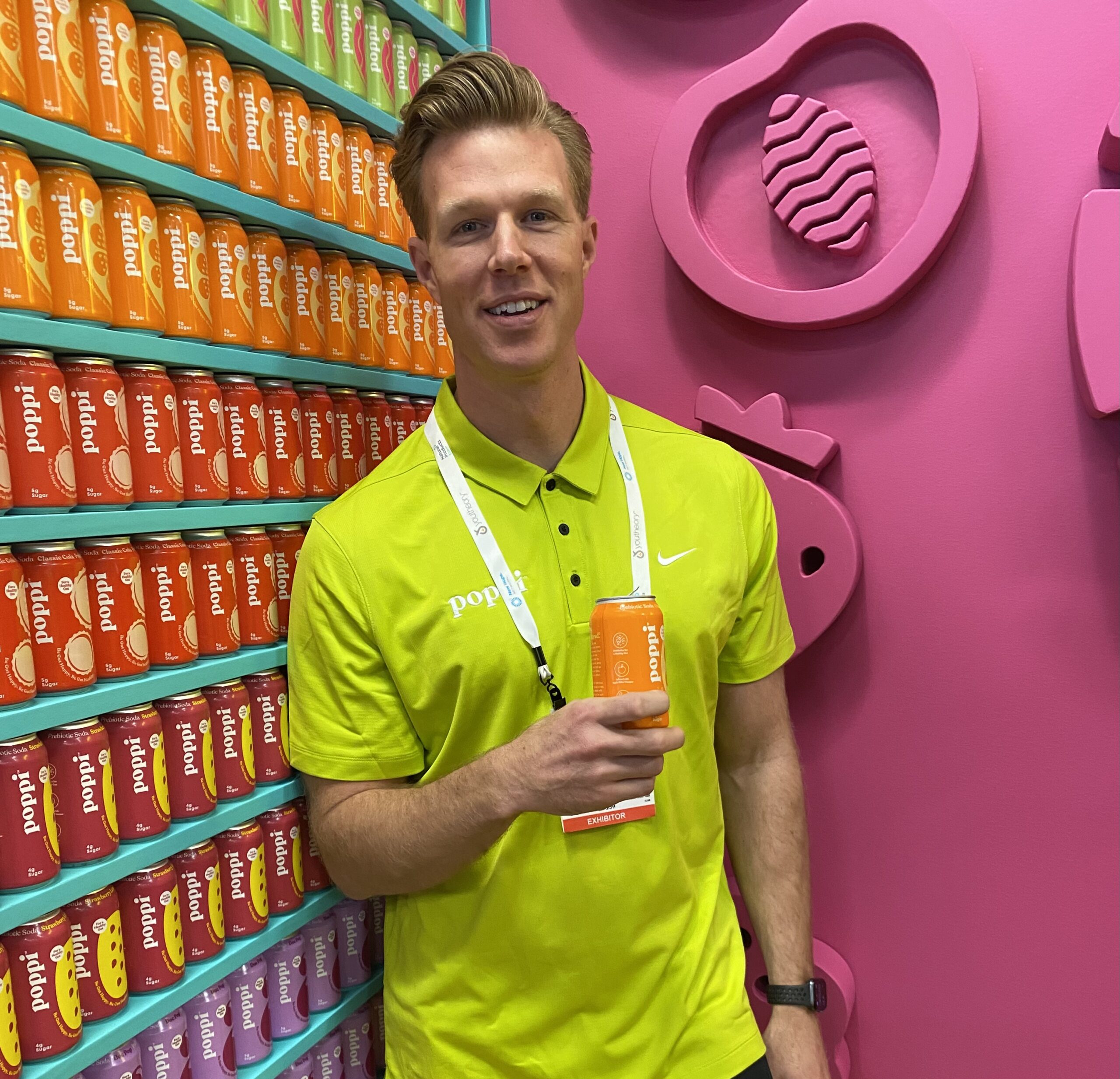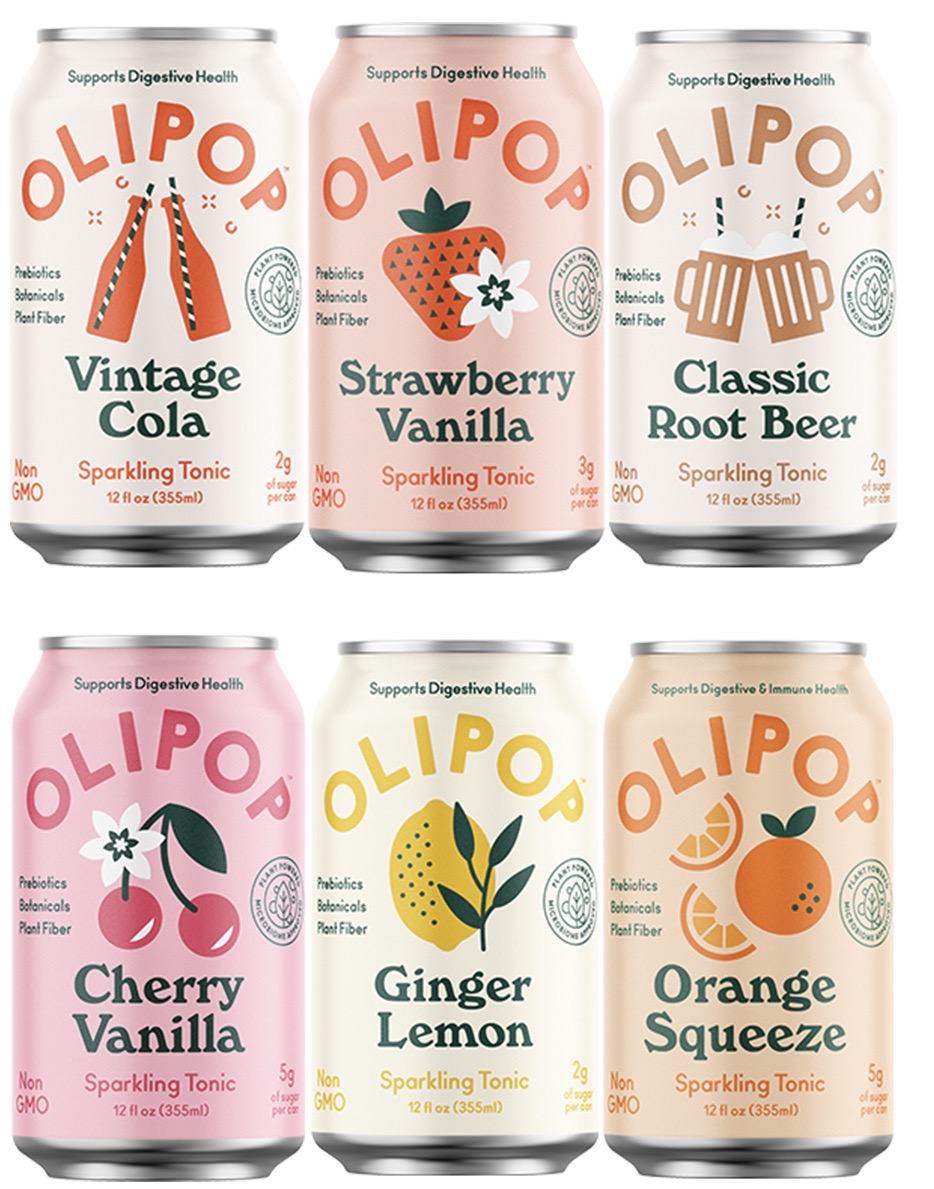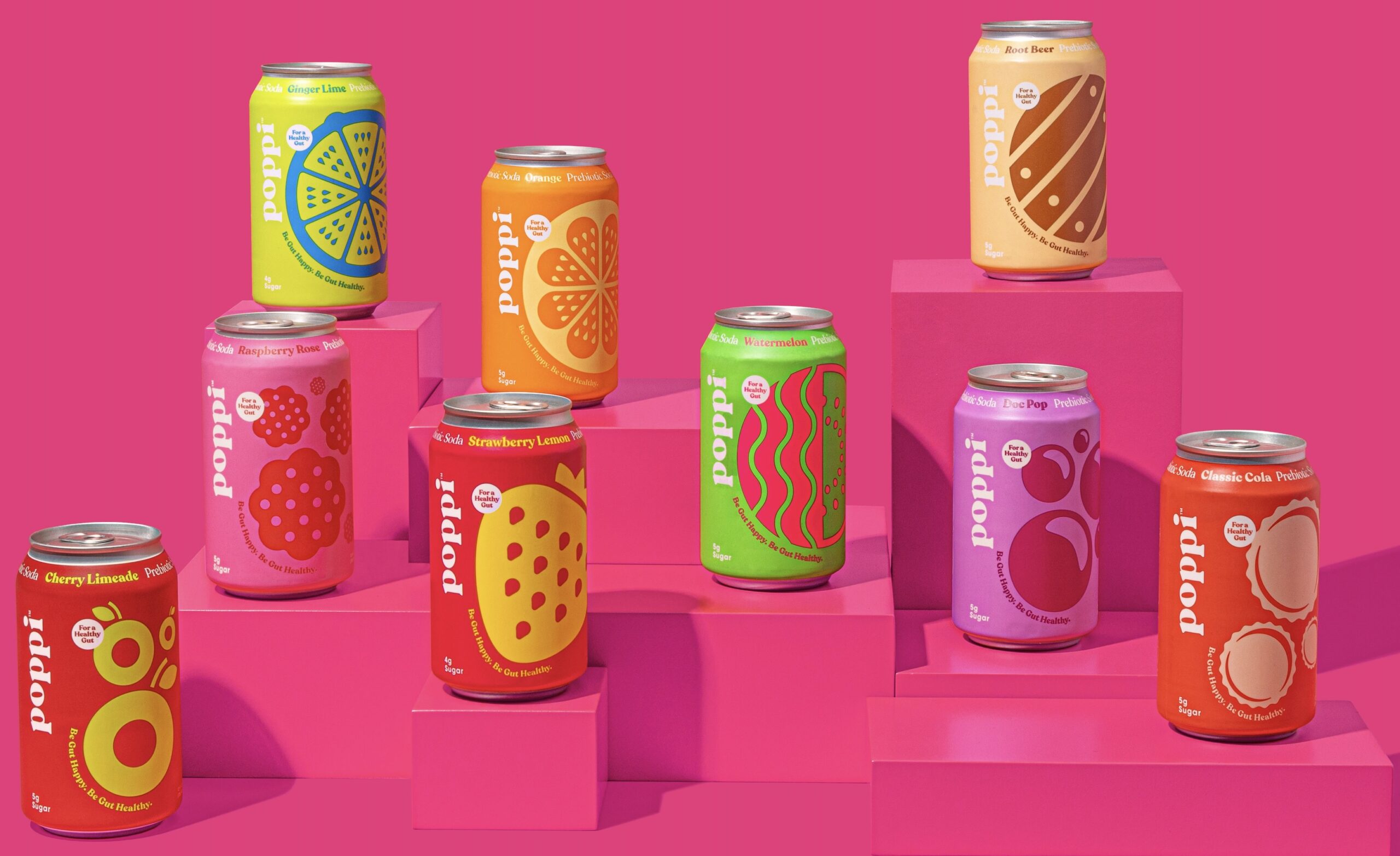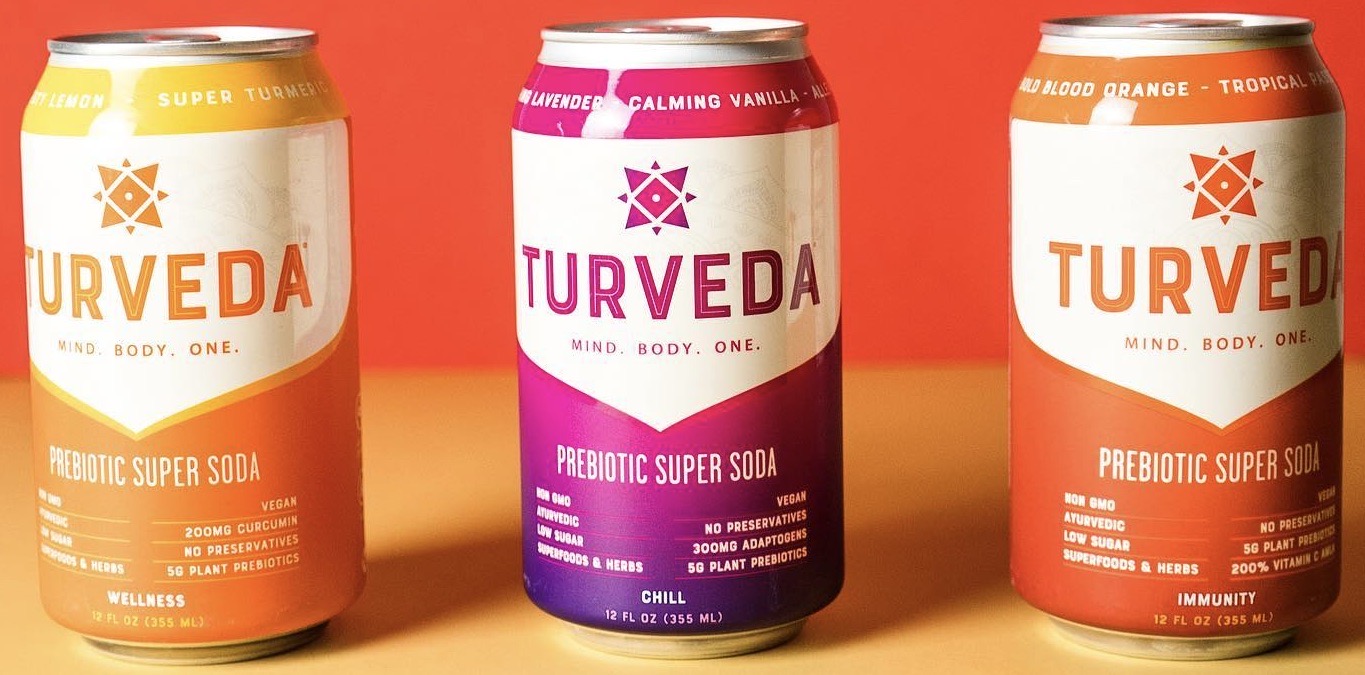
We’re now at the end of July and are experiencing the hottest days of the year. As we deal with this extremely hot weather, we all want to reach for a nice cold beverage to cool down. After water, soda (or pop, as I called it growing up in the midwest) is the most popular drink in the United States.
Conventional soda pop is also one of the unhealthiest drinks. It’s loaded with sugars. And high fructose corn syrup at that. Additionally, conventional pops lack any nutritional value. Fortunately, one of the fastest growing subcategories of natural products and natural beverages is prebiotic soda pop. These products are founded by people who loved a good soft drink, but wanted something healthier.
Prebiotics in general are still a young and grow area of natural products. Some might not be familiar with them Others will ask what’s the difference between prebiotics and probiotics. Here it is. Prebiotics are plant fiber which feed your good bacteria. Probiotics are living bacteria which add on to the amount of good bacteria in your digestive system. Both are beneficial and necessary to maintain good digestion.
For many reasons, prebiotics have become more popular to include in functional soda pop than probiotics. One decision to go with prebiotics was that both probiotics and prebiotics are important to include in your gut and a good number of probiotics drinks, such as kombucha, are already on the market. While probiotics have a flavor of their own, prebiotics don’t have any flavor. So consumers can focus on the ingredients themselves in the prebiotic drinks. Many have found prebiotic formulas are easier to develop than probiotic ones. Another case for prebiotics is they’re more shelf stable than probiotics. And one prebiotic soda maker went with prebiotics because some heat is applied to the spices they add and probiotics would be destroyed by the heat.
Along with prebiotics, a number of other functional ingredients are used from kombucha cultures to apple cider vinegar to ginger. Many of these sodas use cane sugar while some use only natural sweeteners such as stevia, monkfruit, or fruit juice. The people who founded these businesses are also very diverse. Some came from the kombucha industry and wanted to delve into different kinds of natural beverages. Others who created these healthier pops include a gastroenterologist, a rain forest conservationist, and a rocket scientist.
In alphabetical order, here are the 6 best prebiotic soda pops:
Crazy D’s Sparkling Prebiotic Soda
People told Darren Portelli that he was crazy for wanting to create a great tasting ginger soda that was also healthy. Darren had been struggling with migraines all his life. He was tired of relying on medications and wanted to start making some lifestyle changes. While he knew he couldn’t control everything, he what he could control was what he ate and drink. After plenty of research and experimenting, Darren started lightly sweetening beverages with prebiotic root vegetables in place of refined sugars, artificial sweeteners, stevia, or sugar alcohols. In late 2016, Crazy D’s Sparkling Prebiotic Soda began selling in local farmers markets and retail & food service businesses across Ontario. Crazy D’s is now available all over Canada and in select locations in the United States. Plus their prebiotic sodas can be ordered online to anybody in Canada or the U.S. Crazy D’s Flavors are the cleverly titled thrilla in vanilla, ginga’ kick, rockin’ rolla cherry cola, and twisted citrus.
Daytrip
Daytrip was founded in 2019 on the belief that we could all use more ways to get away and the power of plants is the way to help you get there. Daytrip first produced CBD-infused sparkling water. In addition to CBD, all of the beverages also included terpenes. Terpenes are the primary elements of the essential oils in plants. Terpenes also provide hemp plants with their flavor and aroma. Botanical terpenes have many mood elevating benefits. More recently Daytrip began offering prebiotic soda. All of their prebiotic sodas include their proprietary blend of terpenes, elderberries, and prebiotic fiber. Daytrip sees their prebiotic sodas as tasty way to boost your mind-gut connection. For the prebiotic sodas, Daytrip has berry citrus, clementine, and grapefruit lime.
Olipop
For over a decade, Ben Goodwin and David Lester both shared the vision of a healthier and tastier future. So they set out on a odyssey to make a product which would change how people felt about soda pop. This journey led them to forming Olipop. Their idea was a thoughtfully crafted tonic which relied on wholesome hardworking ingredients for its taste as opposed to loads of sugar. In order to accomplish the product they had in mind, they put together a global team of pioneers in the field of gut microbiome research. Ben and David were specifically looking for researchers with knowledge in digestive health, prebiotic structures, model gut systems, and gut microbiome-supportive nutritional strategies. Some of the Olipop flavors include traditional styles of soda pop, such as cola and root beer, while others contain fruits mixed with various ingredients, such as cherry vanilla and ginger lemon.
Poppi
Poppi began with co-founder Allison Ellsworth learning about apple cider vinegar in hopes that it could cure her chronic health issues. She and her husband Stephen decided to experiment in their kitchen by mixing fresh fruit juice with apple cider vinegar. After drinking ACV every day for a week, her symptoms were gone. Seeing that it worked for her, she felt others would be interested in this breakthrough beverage. So the two began bottling up the drinks and offering them at Dallas farmers markets. They developed a loyal following with the beverages quickly selling out every weekend. Ndext they received an investment on Shark Tank and rebranded to the name Poppi to sell their soda pop. Poppi has a wide variety of options from numerous fruits and fruit combination to their versions of soda pop, which are cola, root beer, and Dr. Pepper.
Turveda
Turveda co-founder Dev Chakrabarty was always slightly addicted to the conventional soda pop. As he grew older, he started taking functional shots. Then one day Dev was drinking a Dr. Pepper in his grad school class and an idea came to him. He realized it was time to reinvent the conventional unhealthy soda pop and make it better for your gut and brain by using real plants and spices. So Dev teamed up with his gastroenterologist father Dr. Milan S. Chakrabarty, M.D. to create a soda using ingredients which are scientifically proven to improve digestive health and boost immunity. The Chakrabarty’s referred to this as Super Soda. Super Soda combines superfoods and soda pop to provide about 20% of your daily fiber and all the benefits found in a wellness shot, instead of large amounts of soda and citric acid. The functional ingredients added to the fruits in the beverages come from the founders’ Indian culture and consist of spices such as turmeric, cinnamon, and ginger. Monkfruit juice extract is then used for sweetening.
Xoca
The story of Xoca starts with rainforest conservationist Jerry Toth meeting fellow cacao enthusiast Carl Schweizer in Ecuador. The two founded an Ecuadorian dark chocolate company called To’ak. Along with producing chocolate, they also began experimenting with new uses of the fruit from the cacao tree. One day on the farm, Jerry & Carl along with rocket scientist Jacob Lopata discovered that cacao fruit honey could be made from upcycled cacao fruit juice. A chef friend of theirs mixed the honey with sparkling water and cacao fruit soda was born. Jerry, Carl, and Jacob founded Xoca. Pronounced show-ka, the name is derived from ancient South American language from a word which means waters from paradise. Being produced from cacao, the fruit juice has natural prebiotics in the form of fruit fiber and organic acids, similar to what if found in apple cider vinegar. So no prebiotic strain is needed to be added later. Xoca initially offers the two flavors of cherry and ginger. Along with the cacao fruit juice, stevia leaf extract is also added to the beverages.
